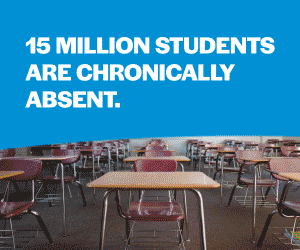
“At its foundation, the American education system is meant to ensure that a quality education remains affordable and accessible for every family, every worker, and every person looking to grab hold of the American dream,” said Jared Bass, senior vice president for the Education department at CAP and co-author of the report. “While we’ve made significant progress, it will take the diligent work of progressive champions seizing every opportunity to help make progress in education in the years and decades to come.”
The main recommendations of the report's chapter on K12 call for:
- Supporting educator recruitment, development, and retention through various means, including by focusing on continued state efforts to increase teacher pay that involves multiple forms of compensation.
- Addressing crumbling school infrastructure, including by rehabilitating poorly ventilated buildings and thus curbing associated health risks for students amid the rise in extreme heat conditions.
- Establishing federal policies to ensure equitable use of artificial intelligence (AI), including addressing digital equity and the creation of ethical principles for AI development.
- Addressing adequate and equitable funding by adopting and incentivizing student-weighted funding formulas so that all school districts in the country can provide equitable educational opportunities.
- Supporting whole child approaches to education, including student mental health and social and emotional learning.
- Strengthening and expanding college and career pathways by focusing on career and technical education, work-based learning, and dual enrollment.
Access the full report here, or go directly to the K12 chapter here.

























